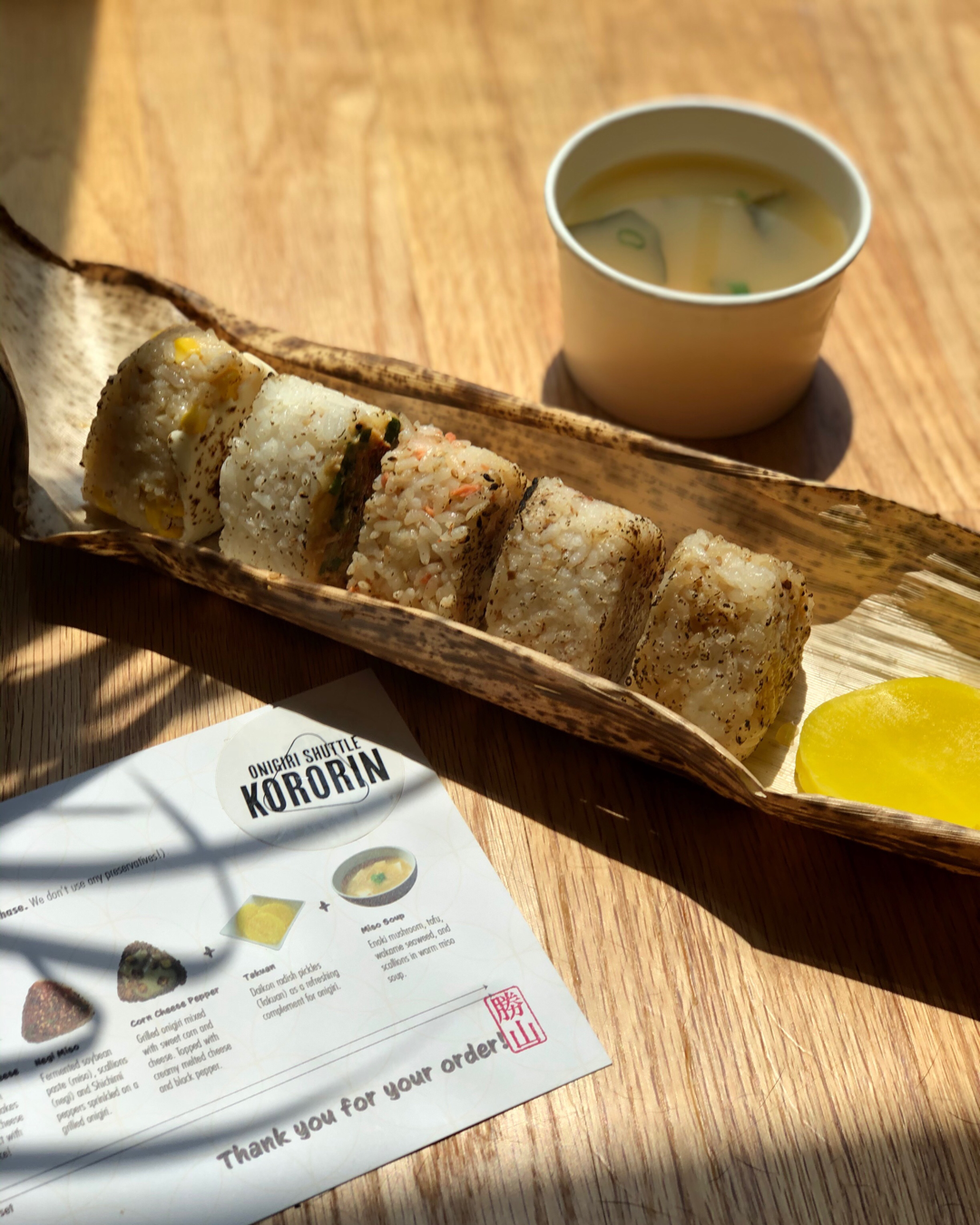Five Questions with Entrepreneur and Best of Chicago Finalist Yuta Katsuyama
March 10, 2021

Yuta Katsuyama created his business, Onigiri Shuttle Kororin, in the height of the pandemic. Now he’s a finalist for Chicago Reader’s Best of Chicago 2020. He talks about becoming an entrepreneur at Institute of Design and how the COVID-19 pandemic made his business possible.
Q: Tell me about your love of onigiri (Japanese rice balls traditionally stuffed with meat and vegetables). What it was like to find that the food was essentially nonexistent in Chicago?
During my first year here I was super busy with the Foundation program, so I spent a lot of time on campus on the weekend. Almost always I struggled to find good food around campus—that is why I missed onigiri, which is handy. Onigiri is really common in Japan. You can get it in convenience stores, and you can find a convenience store every five minutes walking in Tokyo. People in Japan eat it every day, as a breakfast, as a snack, sometimes for dinner.
Q: How did this become a business idea?
In design school we are always thinking about how we might improve something. I was wondering how I could improve my morning routine because I was struggling to have a good breakfast. In my product design class, I had the idea for a rice cooker that could make onigiri. If you prep the rice in the cooker the night before you have a fresh onigiri in the morning. When I presented that project a lot of students and the professor, Marty Thaler, were excited about it. I figured I can make a subscription box, kind of like HelloFresh with rice, seaweed, and fillings.
I tested that concept in the next semester in my Observing Users class and found a lot of problems. First, people in the US usually do not have rice cookers. And my prototype only had plain rice and something inside it like salmon—for some people it was too plain. After the project I thought it would not work.
Q: How did you end up reviving the idea as a delivery service?
That winter break I went back to Japan, had lots of onigiri, and continued thinking about the idea. So when I came back to Chicago, I found a food business incubator, The Hatchery. I talked to Natalie Shmulik, the CEO of The Hatchery, about the idea. She said I didn’t need to make it a meal kit—that I could cook myself. Also, my initial thought was onigiri for breakfast, because that was when I always ate it, but here people don’t eat rice and fish in the morning. Natalie told me you can sell onigiri as lunch or dinner, that I don’t need to sell it for breakfast.
This was the beginning of 2020. Then COVID started, quarantine started. I really love making myself super busy, and when classes went online I had a lot more free time. So I started working on developing the business plan and the designs for the business. After March, I started building recipes for the onigiri, then started making a webpage, and making the concept.
I am an international student, I don’t have a work visa, but you can get OPT (Optional Practical Training), which is like a working visa for a student. My original plan was to start the business and test the concept and finish in five weeks. I just wanted the experience of launching the business. But I found a lot of customers love our product so I decided to keep doing it.
Q: Your onigiri flavors are not what you would traditionally see in Japan. How did you tweak them for a Chicago audience?
That started with my Observing Users class. I brought several authentic Japanese onigiri flavors, but people didn’t really like them. I found out people in the US think Asian food is spicy and people love cheese, so that’s why I put the Sriracha sauce in the package and why I used ingredients like cheese and corn. People love it. We also communicate with our customers really well. We talk with customers at the pick-up spot and on Instagram. We got a lot of requests for vegan onigiri. In Japan there aren’t many vegan people so I never had the idea, but it is working really well. We’re a small company so we can test the new flavors super easily, and onigiri is really customizable because it’s rice and filling, so it’s easy to play with.
Q: How has your dual-degree program helped you start this business?
I didn’t have much money to start a business, but designers have great strengths for creating lean startups. You can design everything by yourself. I used a lot of communication and graphic design skills from ID when I designed the website and when I designed an instruction card for how to enjoy onigiri. I also didn’t need to hire someone to develop the business plan. I knew how to create the business model, since I did an independent study with one of the professors from Stuart, Nik Rokop (MDM 2012). I suggested doing this business as a research project. We had a meeting every week, and then when I had some trouble I could always ask him for help.
I’ll keep doing this business after I graduate, though. I have independent studies with professors at ID and Stuart this semester. We are thinking of making a more efficient delivery model by bringing the Japanese convenience store experience to Chicago.